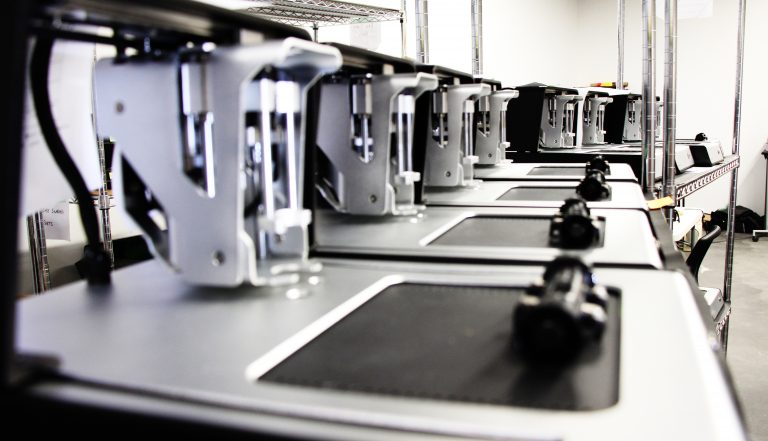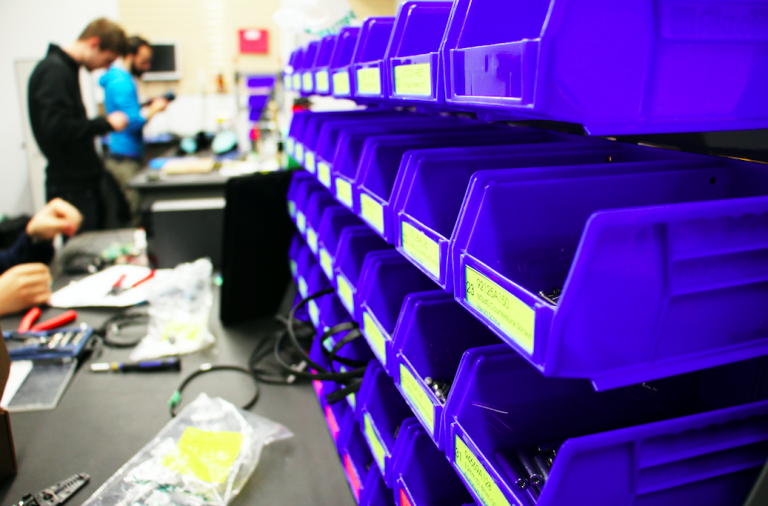Astounded.
That was the reaction from the Voltera team, makers of the world’s first personal circuit board printer, on becoming the first Canadian company to win the prestigious James Dyson Award, announced Tuesday.
The award, judged by and named for British inventor James Dyson, recognizes university students and graduates for designing something that solves a problem.
Voltera joins a growing list of University of Waterloo Velocity companies to be recognized by the James Dyson Foundation. Last year, Suncayr, Velocity company that makes a marker that detects the effectiveness of sunscreen on skin, came in second, with another Velocity company, EyeCheck, named in the top 20.
“The Dyson team actually tricked us,” said Alroy Almeida, co-founder of Voltera, on how the team found out.
Under the guise of an interview for finalists, the Dyson team showed up to Voltera’s office, in the former St. John’s Music space at the back of the Tannery, and finished up by playing a video on a laptop.
On the video “was James Dyson himself,” Almeida said of the famed British inventor and industrial designer, best known for his vacuum cleaners. “We did not see that coming; they completely blindsided us, but it was such a nice personal touch to hear that [we won] coming directly from him.”
Aside from the $45,000 in prize money, plus the $7,500 awarded to the University of Waterloo, the win means more to the team.
“To have their vote of confidence brings a lot of credibility, not only to the issue we are trying to solve, but the way we are going about solving it,” said Almeida, who has much respect for Dyson’s team of engineers who judged the competition, because they had faced the problem Voltera is solving.
Over the past few days, Voltera has landed an international design award and had the Discovery Channel stop by, but the excitement doesn’t stop there.

Early bird units of Voltera’s V-One (Communitech photo:
Phil Froklage)
“This week is doubly exciting and doubly stressful for us, because we are also shipping our first units to customers,” Almeida said.
Getting ready for this week’s shipping has kept the whole team, which has grown from four to 10 since February, busy all year.
All the parts that make up Voltera’s V-One are manufactured in Shenzhen, China, packed in boxes and then shipped to their office in Kitchener, where all assembly and testing happens.
“Our assembly space took a lot of time to build out and it was incredibly fun to buy our own equipment and set up our own production line – it’s a dream that we have always had,” Almeida said.

Voltera’s assembly stations (Communitech photo: Phil Froklage)
As Voltera scales its production and learns lessons with each unit produced, it also has to adjust each time it adds a new person to the team.
To ease the introduction of new personalities, work styles and skills, Almeida started introducing 30-day experiments that involve changing a way of doing something for a month.
“It was something that I picked up from the talk with Tobi [Lütke] from Shopify, who was talking about how they do these experiments every 30 days,” Almeida said, referring to Lütke’s visit to Waterloo Region on Oct. 1.
Overall, the team growth has made everyone “step up and learn and hold each other accountable to work together.”
“It’s so motivating to me to see them – most of the time – extremely frustrated,with the problem they are trying to solve, but just really excited about the fact that they are solving big problems,” Ameida said.
And motivation is definitely needed with the team planning to ship another 300 units by early 2016.

